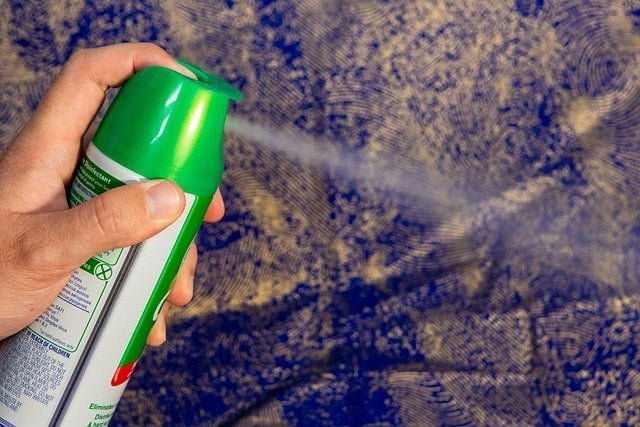Are you aware of the facts about hand sanitisers that are widely used as recommended by the health departments? During the pandemic COVID-19, we all have heard and learned a new term ‘Hand sanitisers’ and today this term is well known to everyone even small kids. Although these days hand sanitisers are widely used, there is a lot of misinformation and myths surrounding hand sanitisers. This article is aimed to remove your common doubts and to know facts about hand sanitisers. This post is to spread awareness about the use and points to keep in mind when purchasing and using hand sanitisers to stay safe from COVID-19.
How to use hand sanitisers?

10 Must-Know Facts About Hand Sanitisers
This post will help you understand what things you need to keep in mind when you purchase a hand sanitiser or when you use a hand sanitiser. This article is for everybody who wants to know more about hand sanitisers and what are the things you need to keep in mind while using and also while giving to your kids. This post is also for nurses who provide information and health teaching to patients and relatives during COVID-19. So let’s get started.
1. Are hand sanitisers effective against covid-19?
Well, the WHO, FDA all these agencies recommend that you need to do handwashing with soap and water. Now, if at all there is a circumstance where you do not have access to soap or water you may use hand sanitiser. This hand sanitiser has to be 60%, at least 60% alcohol-based.
When do you need to use hand sanitiser?
After you use the washroom, before eating food after you touch any surfaces that may have been contaminated. So, yes, hand sanitisers are effective against COVID-19 but the priority is always handwashing with plain soap and running water.

Read How To Manage COVID19 Isolation – Useful Things You Can Do
2. Are antibacterial soaps more effective than plain soap?
There is currently no evidence that shows that antibacterial soaps are better than plain soaps. Well, a lot of companies today claim that antibacterial soaps have ingredients that are better than using plain soap. But because we do not have research evidence that shows that we cannot say that antibacterial soaps are of superior quality to using plain soaps. In fact, evidence and researchers have shown that certain ingredients in antibacterial soaps can lead to skin irritation and allergic reaction as well as certain hormonal effects and can also lead to antibacterial resistance. So you may go ahead with using plain soap to wash your hands.
Read How To Stay Healthy During COVID 19? | Expert Advice
3. Can I make my own hand sanitiser at home?
There was a time when hand sanitisers were out of stock and were not readily available. But today the situation has changed and hand sanitisers are pretty much available everywhere. so it is recommended that you do not make hand sanitiser at home or more specifically you need not make it at home since you can just buy it from the shop. And a lot of people who said how to easily make hand sanitiser at home based on WHO guidance will need to remember that WHO had given the guidelines on how to make hand sanitiser at a time when hand sanitisers were out of stock. So the intention of giving such guidelines was for small-scale production in an area or a locality the hand sanitiser was not available. So you do not have to make hand sanitisers at home.
It is always recommended that you buy a commercially prepared hand sanitiser from your shop specifically because when you make it at home there is a chance that the concentrations may differ and this can lead to burns skin irritation or skin allergies.
Read 5 Indian Habits To Learn During COVID19
4. Are disinfectant surface cleaners that are said to be effective against SARS CoV-2 safe to be used on hands and body?
No. Disinfectants and surface cleaners are not to be used on the human body or animals because these are specifically made to clean surfaces that are hard and non-porous. So do not use disinfectants or sustainers on your hands or on your pets or do not clean your hands with disinfectant. Rather you should always be going for a label that says hand sanitiser which has at least 60% alcohol.

Read Pregnancy And Breastfeeding Guidelines – COVID-19
5. Do hand sanitisers have an expiration date?
Generally, hand sanitisers have an expiry date which is printed on their packaging. We do not know what would happen if you happen to use a hand sanitiser that is beyond its expiration date. That data or that evidence is not yet available. So it’s recommended that you use a hand sanitiser that has not expired and if you happen to have a hand sanitiser that has gone beyond the expiration date then you need to discard it and do not use it.
Read Coronavirus Myth Busters | COVID-19 WHO Advice
6. Where should hand sanitiser be stored?
Hand sanitisers contain alcohol and so you need to store them in a cool and dry place. It is not to be stored anywhere where the temperatures can go beyond 105 degrees Fahrenheit, it needs to be about 40 degrees Celsius. So if you happen to be in an area where the temperature goes up or beyond 40 degrees Celsius then you should not store it in that place. Specifically, you should not be storing hand sanitisers in your car if you are in such areas. And another important thing is when storing hand sanitiser, keep away from the reach of children. It should not be accessible to them or it should not be visible to them.
Read How To Self Protect Against COVID-19 – WHO
7. Are hand sanitisers safe for children?
Hand sanitisers are safe for children but it has to be used under supervision. So of any age children, hand sanitisers are to be used with supervision. In this sense, you need to put the hand sanitiser into the hands of your kid and make sure that the kid does not inject hand sanitiser. Injection for what I mean is the child should not drink the hand sanitiser because it contains alcohol and that can lead to alcohol poisoning in the child. Suppose a child happens to drink hand sanitiser you need to immediately take the child to a doctor or seek professional medical help. Now there is no problem if your child licks his hand, eat with the hand on which hand sanitiser has been applied because this is not going to lead to alcohol poisoning. You need to be careful that hand sanitisers are not left where the child can get access to it and use must be supervised.
Read Healthy Parenting Tips In The Time Of COVID-19
8. Is spraying disinfectants on the body effective against the spread of COVID-19?
There is no evidence to show that spraying disinfectants is effective in controlling covid-19. Then many places there was a practice of having chambers their people used to walk in and disinfectant was sprayed. There were also walkways where people walked and disinfectant was sprayed on them. The FDA does not recommend spraying disinfectants on humans and pets. This is because sanitisers and disinfectants, specifically sanitisers are supposed to be used on the hands. That is why it says hand sanitiser.
It is not to be used all over the body or on the larger surface of the body. Also, it is not to be used in aerosol forms because there can be chances of inhalational injuries. You could inhale that disinfectant, or inhale that hand sanitiser and that can lead to inhalational poisoning, it can lead to skin irritations and it can lead to the development of allergies. So you should not be spraying disinfectants and hand sanitiser on your body and your pet’s body, it is only supposed to be used on the hands.
Read Covid-19 Coping With Stress During The 2019-nCoV Outbreak
9. My hand sanitiser says ‘alcohol’ on its label. What does this term mean?
It means that there is alcohol in your hand sanitiser. There are only two kinds of alcohol that are permitted in a hand sanitiser, one is Ethanol and the other one is Isopropyl Alcohol. Ethanol is Ethyl Alcohol and Isopropyl Alcohol is Isopropanol / 2-Propanol. Now the WHO series recommends that you should always use an alcohol-based hand sanitiser because only that is effective against COVID-19. There are also non-alcohol-based hand sanitiser that uses ingredients such as benzalkonium chloride, but that has not been found to be effective against COVID-19 or we do not have enough evidence to say that these hand sanitisers are effective against COVID-19
So we need to use a hand sanitiser which says ‘alcohol and the ingredients should be either ethyl alcohol or it should be isopropyl alcohol which isopropanol or 2-propanol. If it says methanol or 1-propanol it is not to be used on your hands because these are toxic to humans.
Read Coronavirus Basic Protective Measures – WHO – COVID19
10. Are hand sanitisers flammable?
Yes, hand sanitisers of flammable because they have alcohol content in them. So when you use hand sanitiser you need to make sure that it is completely dry on your hands before you perform any activity that involves heat, electricity or open flames.
How to handle hand sanitisers?
- Use hand sanitiser if you do not have access to soap and water.
- Choose a hand sanitiser that contains at least 60% alcohol.
- Keep hand sanitiser out of reach of children and use it on children under supervision.
- Store your hand sanitiser in a cool and dry place.
- Allow hand sanitiser to drive off completely and do not rinse it off or wipe it off.
- Discard hand sanitisers that is beyond the expiration date.
Final Thoughts
Hope that this article helped to remove your doubts about hand sanitisers and you could understand why and how to use hand sanitisers. As mentioned in the beginning, the aim of this article is to make you understand the facts about hand sanitisers and spread awareness about the importance of their use during COVID-19. It is true that health departments and Govts have strict rules to provide soap and water or hand sanitisers in public places and shops. But I suggest you always carry a small bottle of hand sanitisers with you and use it immediately after touching any surface or human in public places, shopping and travel. Stay safe, stay healthy.
Thank you for the visit. Hope you enjoyed your reading.
Kindly share this article on your network and help others to read it.
Please leave your views about this article in the comments box and don’t forget to subscribe to this site.
Read more :
References: YouTube Rinta Rajan

Mathukutty P. V. is the founder of Simply Life Tips. He is a Blogger, Content Writer, Influencer, and YouTuber. He is passionate about learning new skills. He is the Director of PokketCFO.
He lives with the notion of “SIMPLE LIVING, CREATIVE THINKING”. He Believes – “Sharing is caring.” and “Learning never ends.”



